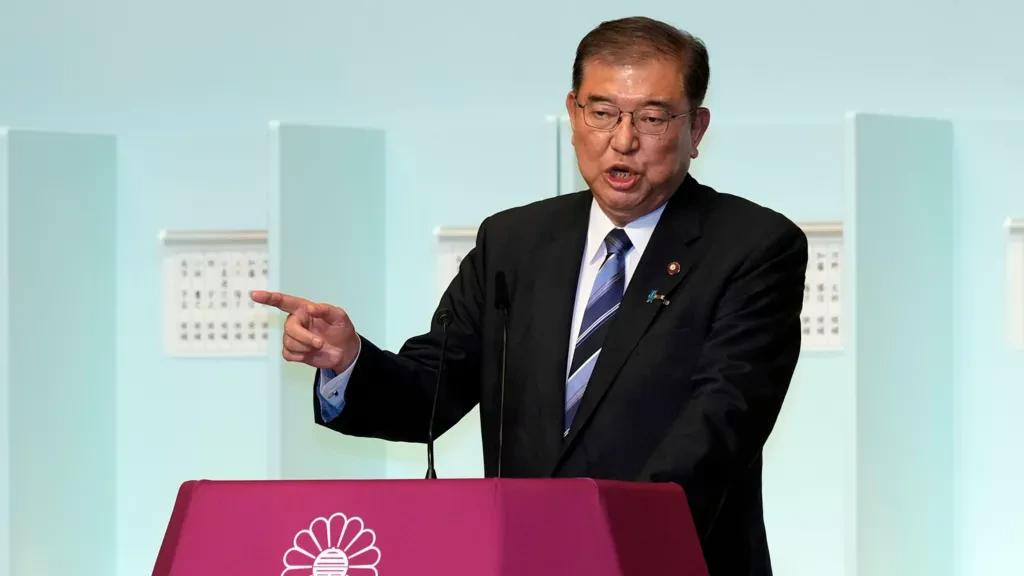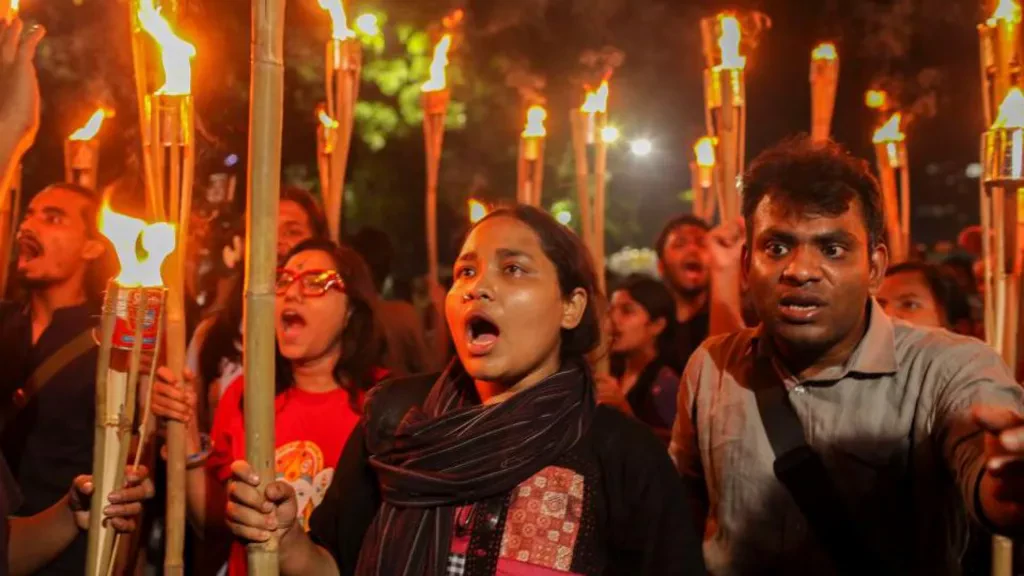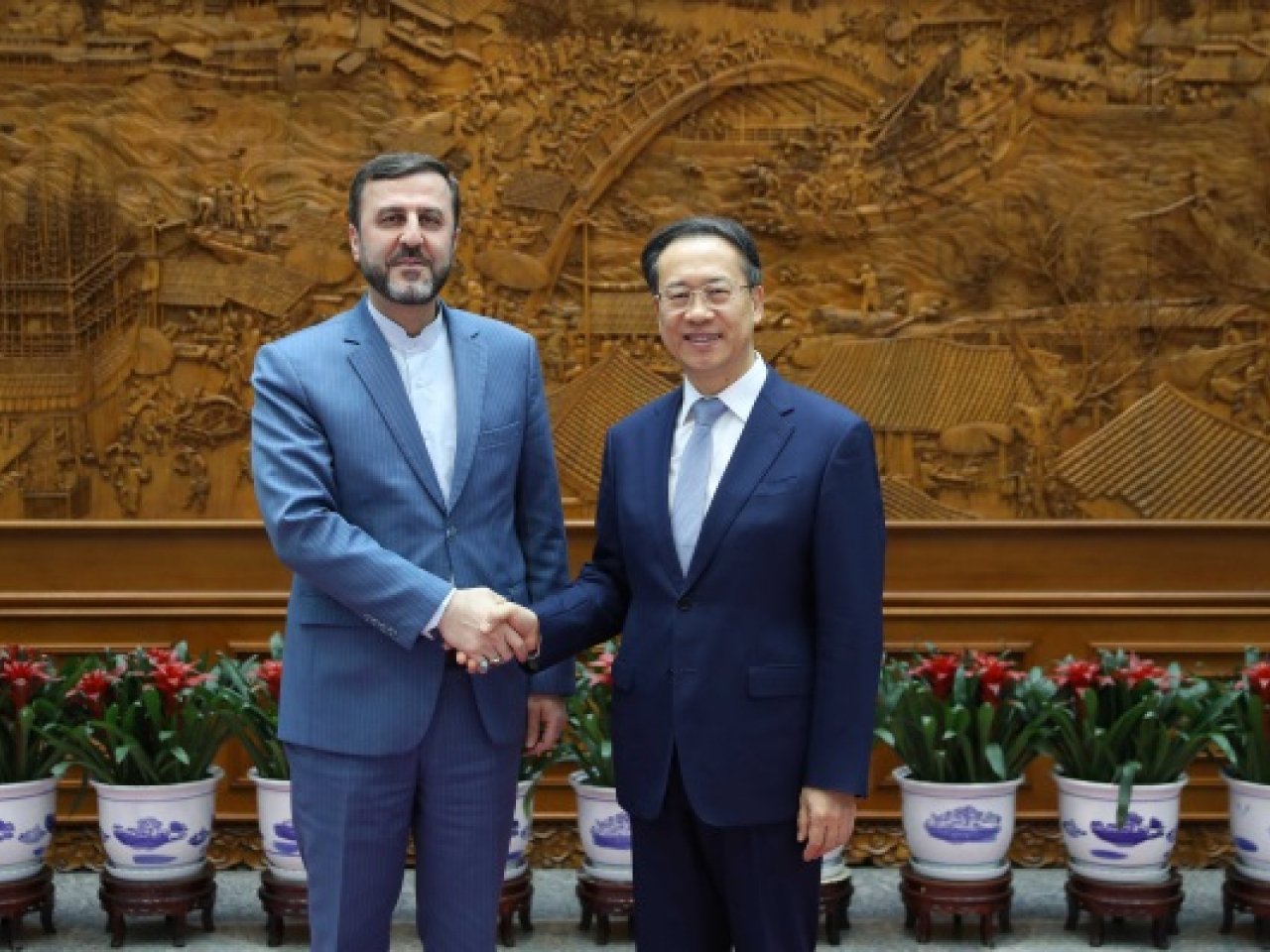Japan's scandal-hit ruling party picks next PM

The change of guard comes at a turbulent time for Japan's ruling party. (EPA)
Tokyo, September 27 — Japan’s scandal-hit ruling party has elected Shigeru Ishiba as its new leader, positioning the former defence chief as Japan's next leader.
Ishiba, 67, said he would clean up his Liberal Democratic Party (LDP), revitalise the economy and address security threats after winning Friday's party election.
Since the LDP has a parliamentary majority, its party chief will become prime minister and Ishiba is expected to be appointed to the role on Tuesday.
The change of guard comes at a turbulent time for the party, which has been rocked by scandals and internal conflicts that disbanded its once-powerful factions.
Nine candidates contested for the party leadership after Prime Minister Fumio Kishida announced last month that he would not stand for re-election.
Ishiba led in most opinion polls, with this being his fifth and, he said, final bid to lead the LDP, which has ruled Japan for most of the post-war era. It headed into a run-off between Ishiba and Sanae Takaichi, 63, who vied to become Japan’s first female leader.
"We ought to be a party that lets members discuss the truth in a free and open manner, a party that is fair and impartial on all matters and a party with humility," he told a press conference.
Ishiba is in favour of allowing female emperors – a hugely controversial issue opposed by many LDP member and successive governments.
His blunt candour and public criticism of Prime Minister Kishida – a rarity in Japanese politics – has rankled fellow party members while resonating with members of the public.
Ishiba is well-versed on the machinations of party politics as well as security policies. He said Japan must strengthen its security in view of recent incursions from Russia and China into Japan's territory and North Korea's missile tests.
At a moment of flux within the LDP, he offers a safe pair of hands and stability.
What he doesn’t offer is a fresh face for an organisation desperate to reinvent itself and regain public trust amid a stagnant economy, struggling households and a series of political scandals. His economic strategy includes boosting wages to counter rising prices.
He has said that he reads three books a day and that he prefers doing that instead of mingling with his party colleagues.
Takaichi, on the other hand, was one of two women vying for the LDP leadership, but was also among the more conservative of the candidates.
A close ally to late former prime minister Shinzo Abe, Takaichi's positions on women's issues are in line with the LDP's policy of having women serve in their traditional roles of being good mothers and wives.
She opposes legislation allowing women to retain their maiden name as well as allowing female emperors.
Ruling party must change
Consistent among the frontrunners, however, was a pledge to overhaul the LDP - which has held power almost continuously since it was formed in 1955 - in the face of public fury and plummeting approval ratings.
"In the upcoming presidential election, it's necessary to show the people that the Liberal Democratic Party will change," Kishida said at a press conference last month, when announcing his decision not to run for another term.
The LDP leadership contest is not just a race for the top job, but also an attempt to regain public trust that the party has haemorrhaged over the past few months amid a stagnant economy, struggling households and a series of political scandals.
Chief among these scandals are revelations regarding the extent of influence that Japan’s controversial Unification Church wields within the LDP, as well as suspicions that party factions underreported political funding over the course of several years.
The fallout from the political funding scandal led to the dissolution of five out of six factions in the LDP – factions that have long been the party’s backbone, and whose support is typically crucial to winning an LDP leadership election.
Perhaps more salient in the minds of the Japanese public, however, are the country's deepening economic woes.
In the wake of the Covid pandemic, average Japanese families have been feeling the pinch as they struggle with a weak yen, a stagnant economy and food prices that are soaring at the fastest rate in almost half a century.
Meanwhile, data from the Organisation for Economic Co-operation and Development (OECD) shows that wages in Japan have barely changed in 30 years. That drawn-out slump, coupled with 30-year-high inflation, is tightening the screws on Japanese households and prompting calls for government help.
It's also damaging the LDP's historically favourable standing among voters.
“People are tired of the LDP,” Mieko Nakabayashi, former opposition MP and political science professor at Tokyo’s Waseda University, told the BBC. “They’re frustrated with the inflation that they are facing currently and the so-called ‘lost 30 years’. The Japanese currency is low, lots of imports got expensive with inflation, and many people see it.”
Another major agenda item is the issue of Japan’s ageing and shrinking population, which puts pressure on social and medical services and presents a real challenge for the country’s medium and long-term workforce. Whoever takes charge of the LDP, and in turn government, will have to rethink how Japan operates its labour market and whether it should shift its attitudes towards immigration.
It’s a desperately needed recalibration in the lead-up to the Japanese general election, which is set to take place by October 2025 – or sooner, as some of the candidates have indicated. Koizumi, for example, has said that he would call a general election soon after the LDP contest.
The last two weeks of campaigning for the LDP leadership are seen by experts as an audition for the general election. For that reason, candidates have been presenting themselves not only to fellow party members but also to the public, in an attempt to win over the electorate.
“The public are changing,” Kunihiko Miyake, a visiting professor at Kyoto’s Ritsumeikan University who has worked closely with both Abe and Kishida, told the BBC. “It’s time for the conservative politics in this country to adapt to a new political environment and political battlefield.”
The other seven candidates in the first round were 43-year-old Shinjiro Koizumi, the youngest candidate; Foreign Minister Yoko Kamikawa, 71, who is the other female candidate; Digital Transformation Minister Taro Kono, 61; Chief Cabinet Secretary Yoshimasa Hayashi, 63; Toshimitsu Motegi, 68, the LDP's secretary-general; Takayuki Kobayashi, 49, a former economic security minister; and Katsunobu Kato, 68, a former chief cabinet secretary.
Four of the nine have served as foreign minister; three as defence minister.










Leave Comment